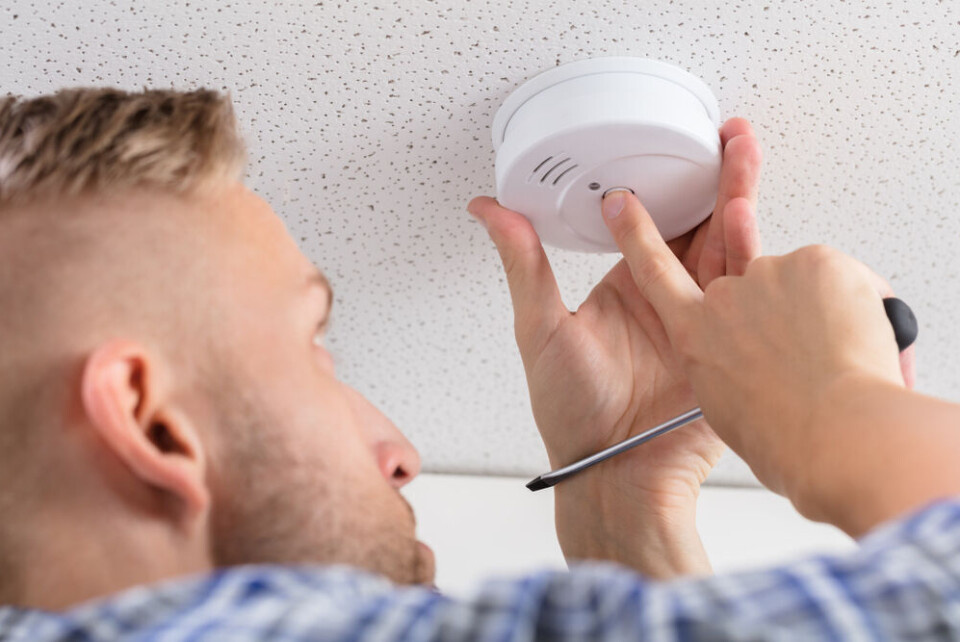-
How to lower the amount you pay for insurance in France
‘Big three’ insurances all set to see costs rise in 2026
-
New DPE requirements affect 11 million flats in France
Certificates evaluate the energy performance of exterior walls, windows, roofs and shared areas
-
Explosion at chemical plant near Lyon: where are other ‘at risk’ sites in France?
An estimated 2.5 million people live within a kilometre of a French Seveso site
Is it compulsory to install a smoke detector in every French property?
We outline the rules for installing smoke detectors and alarms in properties in France

Reader question: Do I have to install a smoke detector in my property in France by law? Does it make a difference if it is my main residence, second home, or rented out?
The short answer is yes, it is compulsory to install an automatic smoke detector with an alarm in your property in France, no matter whether it is your main or second home, or a rental property.
The device required is called a détecteur autonome avertisseur de fumée (DAAF, or autonomous smoke alarm) in French.
This has been the case since the introduction of the ALUR law (‘loi ALUR’, l’accès au logement et un urbanisme rénové) in 2015, and is also stated in various laws introduced between 2010 and 2015.
Read more: From the archive: One-year countdown to smoke alarm law
At least one smoke alarm required in every home
In its current iteration, the law states that the property owner must install at least one DAAF in the property (preferably in the hallway, or in a corridor leading to the bedrooms).
If the property is rented out - even if only as a short-term let - the DAAF must be inspected regularly by the owner (or someone acting for the owner) to check that it is still in good working order.
The property’s usual occupant, the owner or the long-term tenant, is responsible for ensuring that the device is maintained and working properly, however this does not apply to short-term let guests from sites such as Airbnb.
This includes checking that it is still in good condition, working as intended, and that the batteries are still working.
In the case of a long-term rental property, it is the responsibility of the owner to install the DAAF, or to reimburse the tenant if they purchase and set up a device upon moving in.
There is no requirement to use an official or external installer to install a device.
Owners of multi-property or multi-tenant buildings must also take measures to limit the spread of fire, for example by installing fire-safe doors or using non-flammable materials.
What type of device is acceptable?
The DAAF must show the CE mark (to show it is EU compliant) and it must conform to Regulation 305/2011, known as the Construction Products Regulation (CPR). Devices must also comply with the European standard NF EN 14604 of November 2005.
Ultimately, this means that the alarm is loud enough to alert the property’s occupants to a problem if smoke is detected, even if they are sleeping or playing music.
The alarm signal must have a sound level of at least 85 decibels A (dB A) measured at a distance of three metres.
The device must either work with batteries (and alert the occupants when the batteries are running low with an obvious visual or audible signal, or both) or be fed by the property’s power supply (with a backup system in case the supply fails).
The device’s labelling must also include the name or brand and address of the manufacturer, show the NF EN 14604 standard number, and the product model designation.
The instructions for use must also include directions on where to install the alarm, how to maintain it, and how to change the batteries on that particular model.
France’s official product compliance unit (Direction générale de la concurrence, de la consommation et de la répression des fraudes, or DGCCRF) is vigilant in ensuring that products in this sector are legally compliant.
As part of its checks samples are sent to a laboratory for testing, to determine whether the products comply with the standard and are safe for their intended use.
Insurance policies
In case of a fire that leads the tenant or owner to claim for damage on their insurance, the claimant must show that they had taken out a contract covering fire damage in a property installed with a compliant smoke detector and alarm.
However, insurance companies cannot claim that a detector has not been installed (or not installed properly) to avoid paying for a claim.
























